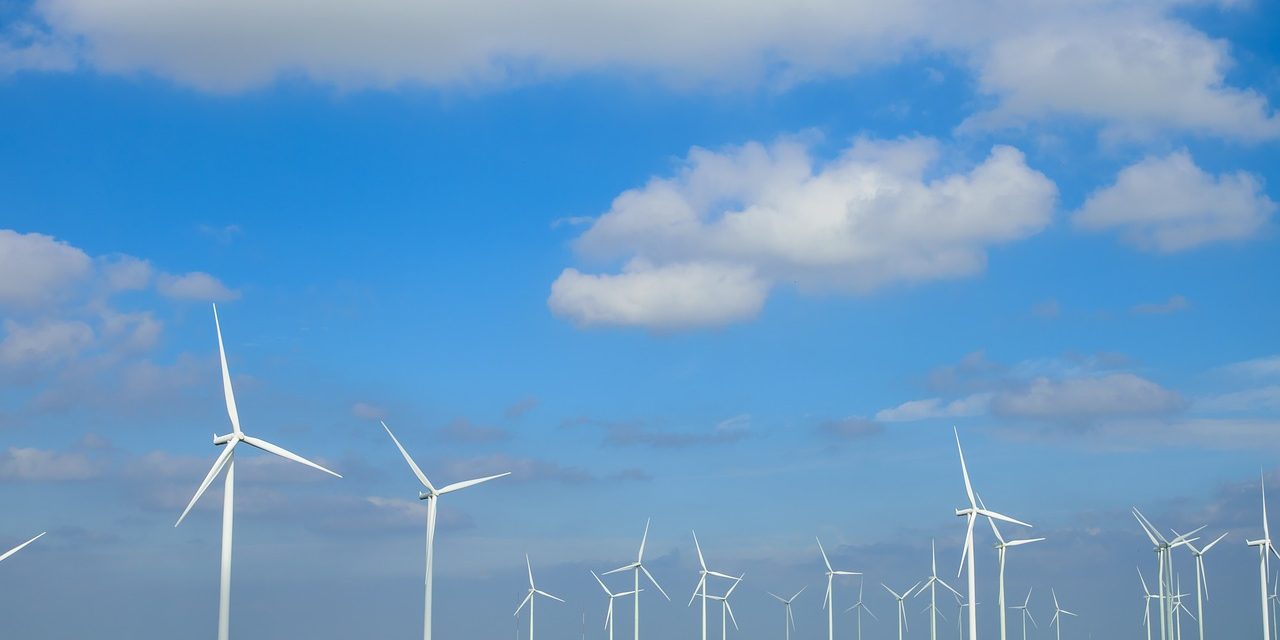Boris Johnson confirmed the government’s plan for Britain’s electricity to come from only renewable sources by 2035. The government will increase investments in renewable and nuclear energy in order to move away from the use of fossil fuels. This will also allow for what the government says is “a landmark move to end Britain’s dependency on volatile fossil fuels.” This is undoubtedly important as it is clear how the global surge in gas prices affected the UK energy market.
It will be a significant step towards the government’s goal of hitting net-zero emissions by 2050, and will reduce the UK’s vulnerability to the global changes in gas prices.
Can the UK meet its 2035 target?
The UK has committed to cut carbon emissions by 78% by 2035. The prime minister, Johnson, believes that it is the most ambitious climate change target globally, which would put the country on track to become a net-zero emissions producer by 2050. In 2020, the country had generated 43% of its electricity from renewable sources. However, gas-fired power plants still account for a big percentage of the energy generation. Nuclear power plants, which account for about a sixth of the UK’s electricity, would also continue to be part of the energy production to reach the net-zero goal.
Nuclear to be part of the solution
Government’s plan could be seen as too ambitious, since 38% of the electricity is still produced by fossil fuels. To speed up the plan of moving to renewable energy, the government is considering that nuclear will be a key part of reaching their net-zero objective. Boris Johnson committed in December 2020 to support at least one large-scale nuclear project by 2025.
The Business and Energy secretary Kwasi Kwarteng said: “The more I look at this, I think nuclear has to be part of the solution”. “What we need to do in this country is have a cheap, affordable system, something that’s sustainable, and something which we can rely on ourselves, which protects us from the vagaries of international price movements.”
Kwasi Kwarteng has revealed that the government is working on a strategy for the country to reach net-zero emissions by 2050, as well as a long-awaited plan on how to decarbonize the country’s heating supply.
How will your daily life change?
With the UK moving forward and becoming more sustainable, your daily life might change in some aspects, such as the car you use. Overall, the changes will have a positive effect not only on the environment, but also on your energy consumption and bills. This is because the government expects that independent renewable energy production will undoubtedly lower energy bills and wholesale gas prices.
Lower energy bills
The current energy market crisis shows that the UK is dependent on external sources of energy, which also plays a role in the energy prices around the country. The crisis further highlighted the need for more renewable energy produced inside the UK. This could be the key to bringing energy prices down.
Boris Johnson said: “It will mean that for the first time the UK is not dependent on hydrocarbons, coming from overseas, with all the vagaries in hydrocarbon prices and the risks that poses for people’s pockets and for the consumer.”
“We will be reliant on our own, clean power generation which … will help us also to keep costs down”, he added.
“What I’m saying is that we can do for our entire energy production by 2035 what we’re doing with internal combustion engine vehicles by 2030”, Boris Johnson said about the 2030 ban on sale of new diesel and petrol vehicles.
Switching to electric vehicles
Electric vehicles have been a trending topic over the past couple of years. In fact, with every year there are more people that decide to switch their conventional petrol car for an electric one. Sooner or later, many people might be required to make the change. In 2020, the UK government announced that from 2030 all new petrol and diesel cars will be banned and only second-hand ones will be available. There are already around 42,000 charge points across England in over 15,500 locations and more to come in the next few years, while the country is modifying its infrastructure.




